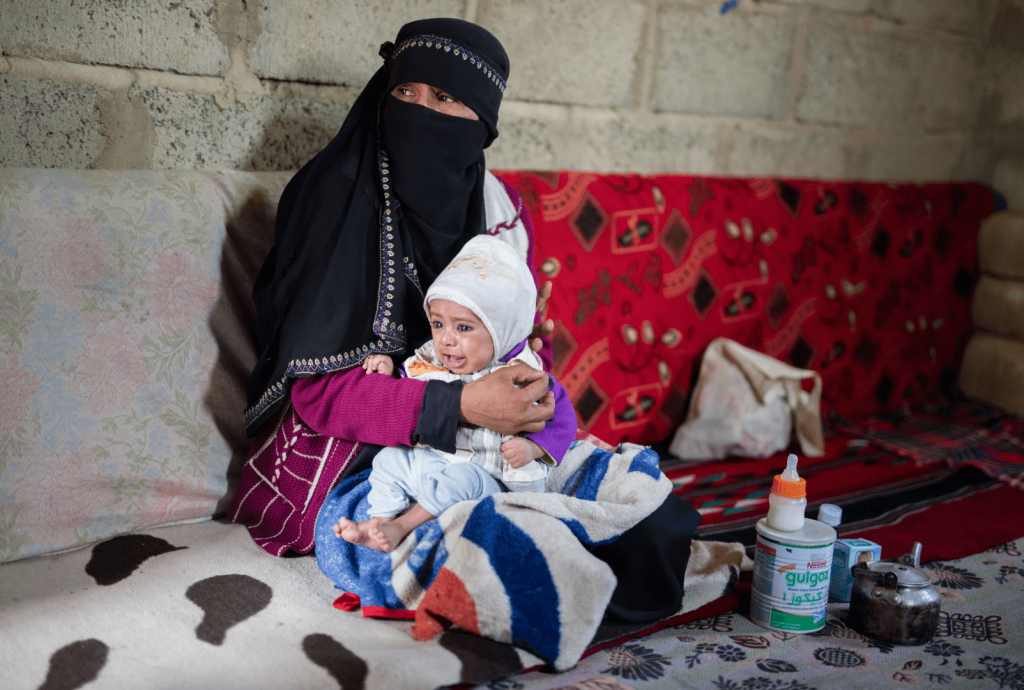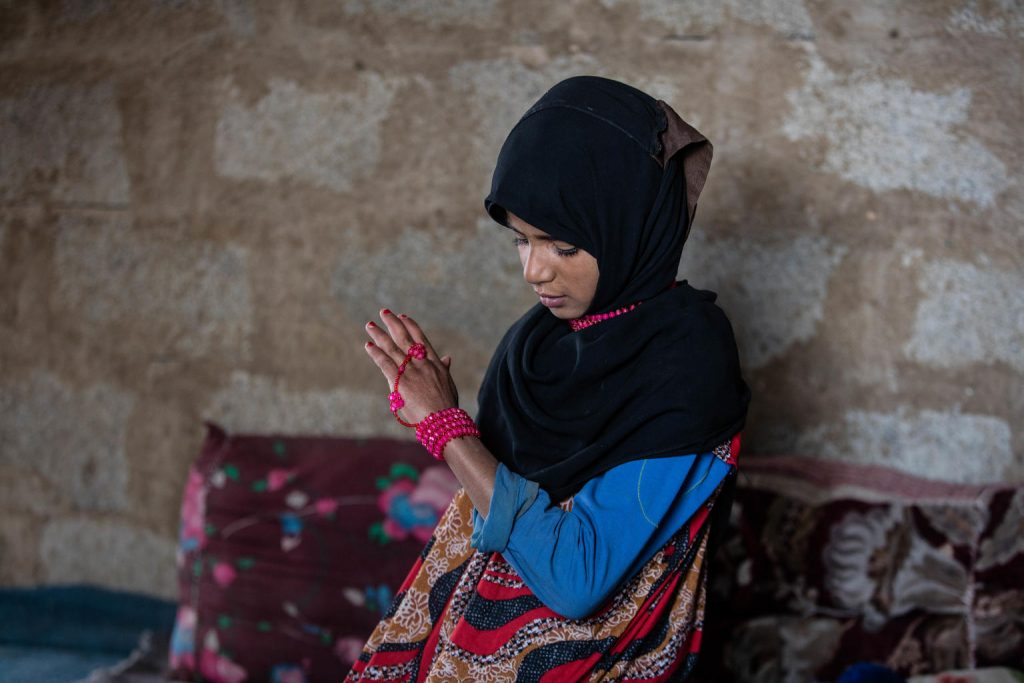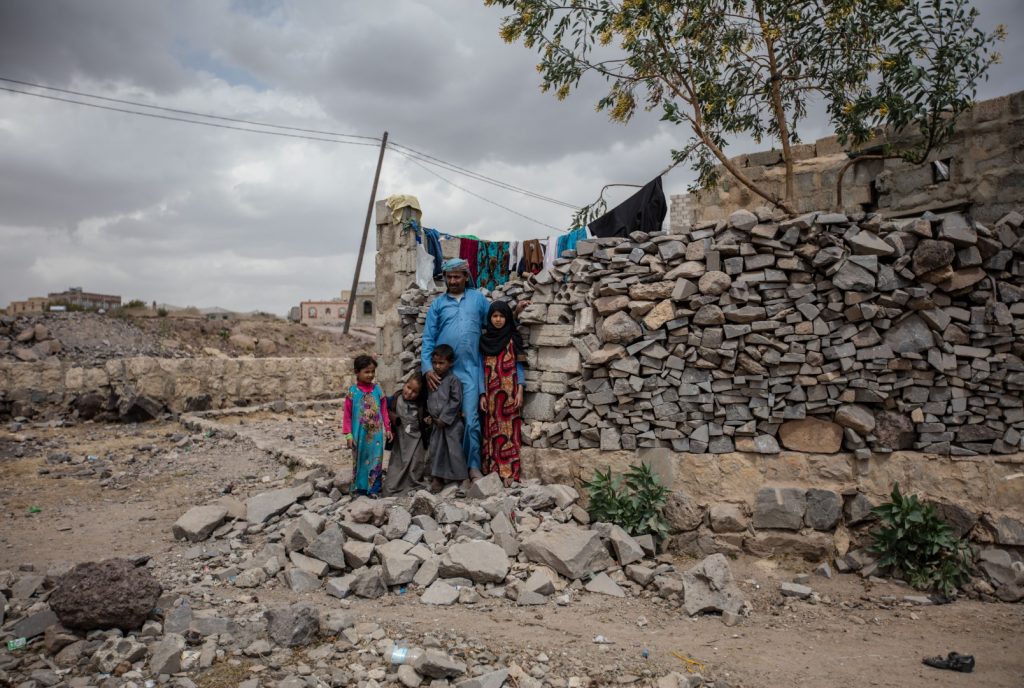No mother should die giving birth to her baby, but that’s what happened to Ali’s mother, Khaizaran in Yemen.
Ali was loved long before he was born but his mother never got to hold him or nurse him. She never got to sing him a lullaby or tell him how much she loved him. When Khaizaran’s labour pains began last winter, there was no question of her going to the hospital to deliver her baby.
Pregnant Women Have No Access to Medical Help

Ali’s grandmother takes care of him after the death of his mother. Yemen | 2019 | Alahmadi
The nearest one was hours away and she and her husband couldn’t afford the taxi fare to get there. There was no one to help them in their village either. There was no trained midwife, no doctor’s surgery or health centre.
Khazarian laboured completely unassisted, without pain relief or medical intervention. After baby Ali was finally born, Khaizaran began to haemorrhage. Nothing could stop it.
Realising how dangerous the situation was, Yahya, Khazarian’s husband, lifted her onto his shoulders and rushed out into the freezing night to find help.
Despite Yahya’s desperate search for help, Khaizaran had lost too much blood and she died in his arms.

10-year-old Emarat wears her late mother’s bracelet. Yemen | 2019 | Alahmadi
Women and babies in remote communities of Yemen are dying because they can’t reach help in time. Yet if more villages had a trained Community Midwife equipped with the proper tools to deliver babies safely, this tragedy would not have to happen at all.
Only 3 Out of 10 Babies are Born in Hospital
In Ireland, every mother has the right to a hospital birth, where they, and their babies, will be cared for. A hospital delivery isn’t an option for most women in Yemen right now. In fact, only 3 out of every 10 babies there are born in a hospital or health facility.

Khaizaran’s husband, Yahya, a father of 8 children is now the sole breadwinner of the family. Yemen | 2019 | Alahmadi
For Ali, if he survives, every birthday will be a reminder of the day he lost his mother. Ali’s chances of survival are now greatly reduced, as 1 in 30 babies who’ve lost their mother die within the first month of life.
You can help change the lives of mothers and babies in Yemen by ensuring they receive medical care during pregnancy and labour.
By donating €75, you’ll provide five delivery kits to five women, allowing them, and their child, to labour safely.


